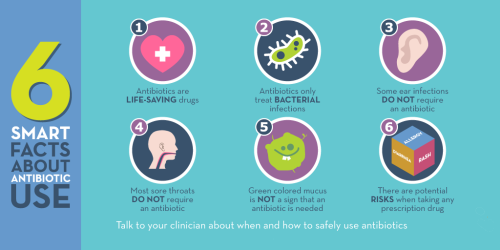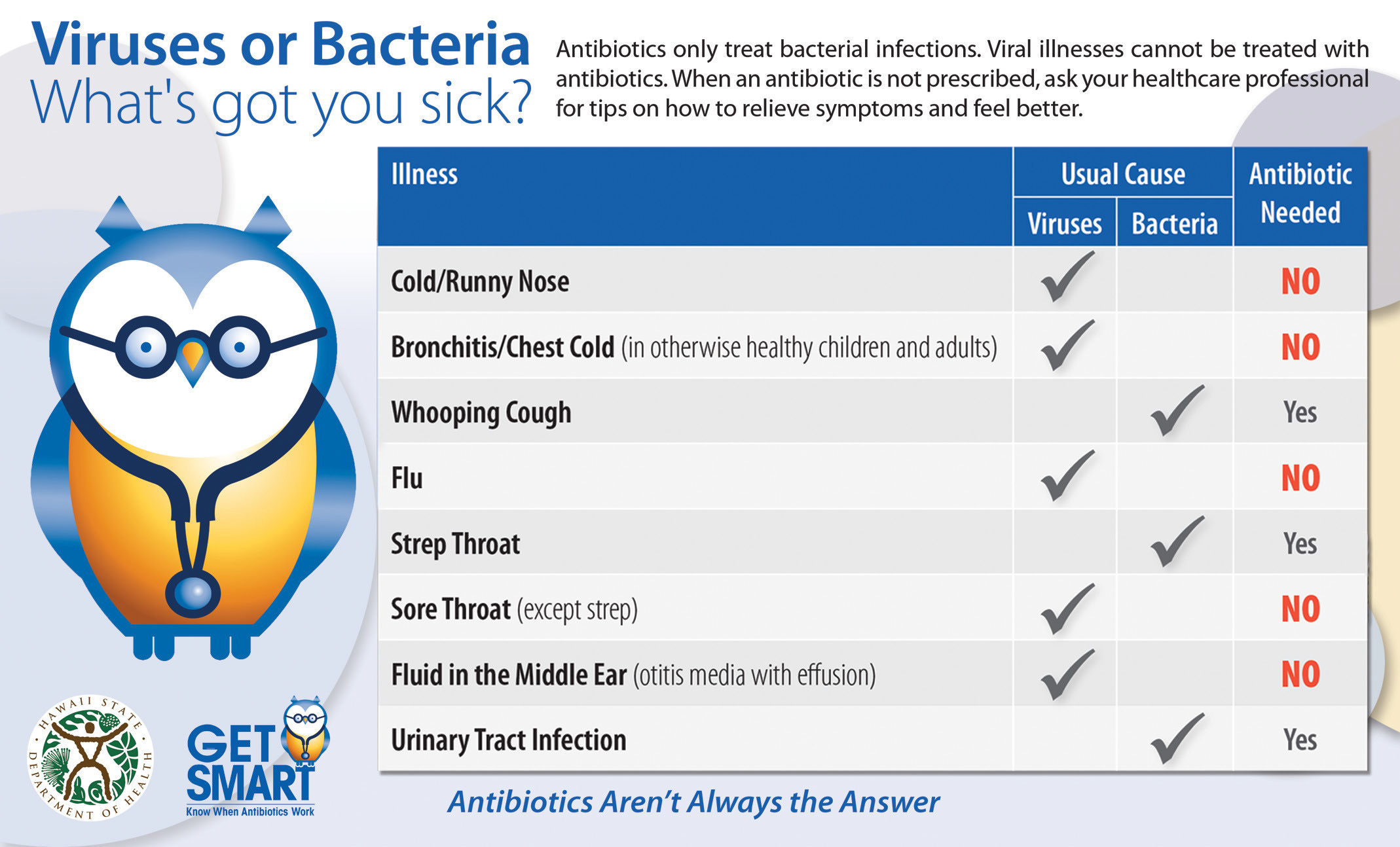Since the discovery of penicillin, antibiotics have been used to save countless lives from the potentially deadly consequences of infection. While these medications have become a vital part of today’s healthcare system, bacterial resistance to these drugs is increasing due to overuse and misuse of antibiotics. In order to ensure that antibiotics are able to continue working and saving lives, we must work toward improving antibiotic prescribing and use in outpatient health care settings, such as clinics, offices, and emergency rooms. This is known as antibiotic stewardship.
Antibiotic stewardship is a coordinated set of efforts to:
- Measure antibiotic prescribing
- Improve prescribing by clinicians and use by patients so that antibiotics are only prescribed and used when needed
- Minimize misdiagnoses or delayed diagnoses leading to underuse of antibiotics
- Ensure that the correct drug, dose, and duration are selected when an antibiotic is needed
Antibiotic Misuse
Misuse of antibiotics is a major contributor to the development of antibiotic-resistant bacteria. At least 30% of all antibiotics currently prescribed in the outpatient setting are done so unnecessarily, and as much as half of outpatient antibiotic selection, dosing, or duration in humans may be inappropriate[1].
[1] Core Elements of Outpatient Antibiotic Stewardship (URL pending)
Antibiotics Are Not Always Necessary
As antibiotics do not work on viral infections, antibiotics should be prescribed only when a bacterial infection is known or suspected.
| Do | Don’t |
|---|---|
| Ask your healthcare professional about what you can do to stop or slow antibiotic resistance | Take an antibiotic for a viral infection like a cold or the flu |
| Ask your healthcare professional if there are steps you can take to feel better and get relief from your symptoms without using antibiotics. | Pressure your healthcare professional to prescribe an antibiotic. |
| Take the prescribed antibiotic exactly as your healthcare professional tells you. | Skip doses or stop taking an antibiotic early, even if you no longer feel sick, unless your healthcare professional tells you to do so. |
| Safely discard any leftover medication. | Save antibiotics for the next time you become sick or take antibiotics prescribed for someone else. |
Resources
Centers for Disease Control and Prevention Flyer (PDF):
Antibiotics Aren’t Always The Answer Flyer (CDC) :
English | *Chuukese | *Ilokano | *日本語 Japanese | *Marshallese | *Tagalog
*Translated by the Hawaii State Department of Health


